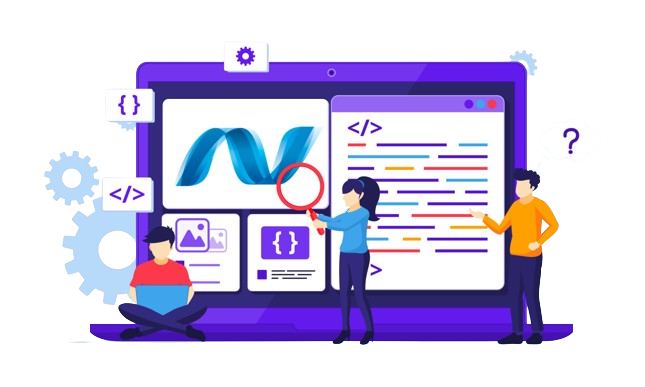"ASP.NET MVC stands as a cornerstone in modern web development, offering developers a robust and structured framework for building dynamic and scalable web applications. Developed by Microsoft, ASP.NET MVC follows the Model-View-Controller architectural pattern, providing a clear separation of concerns and facilitating rapid development, testing, and maintenance of web applications. With its seamless integration with Visual Studio and extensive support for C#, ASP.NET MVC empowers developers to create elegant and high-performance web solutions that meet the demands of today's digital landscape."
Unveiling Asp.net MVC's Core Advantages:
- Separation of Concerns :
ASP.NET MVC separates the application concerns into three main components: Model, View, and Controller. This separation makes the codebase more organized, easier to maintain, and testable.
- Testability :
Because of its separation of concerns, ASP.NET MVC applications are highly testable. Developers can easily write unit tests for controllers, views, and models, leading to more reliable and robust applications.
- Extensibility :
ASP.NET MVC is highly extensible, allowing developers to customize and extend various parts of the framework to meet specific project requirements. This extensibility enables developers to integrate third-party libraries, frameworks, and tools seamlessly.


- Rich Ecosystem :
ASP.NET MVC benefits from a rich ecosystem of libraries, tools, and resources provided by Microsoft and the community. Developers can leverage these resources to accelerate development, improve productivity, and address common challenges.
- SEO-friendly URLs :
ASP.NET MVC enables developers to create SEO-friendly URLs using routing mechanisms. This makes it easier for search engines to index and rank web pages, ultimately improving the visibility and discoverability of the application.
- Integration with ASP.NET Core :
ASP.NET MVC is fully integrated with ASP.NET Core, Microsoft's cross-platform framework for building modern web applications. This integration provides developers with access to the latest features, performance improvements, and cross-platform capabilities.